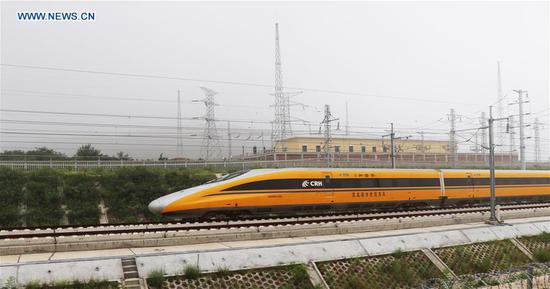A sharp contrast in the performances of the stock markets in India and the Chinese mainland in the past decade, during which Indian stocks outperformed that in the Chinese mainland, has shed light shortcomings in the domestic stock market and prompted calls in China to learn from the mature stock market system in India.
Since October 2008, Indian stocks have gained by 394 percent, while the main index in the Chinese mainland has only risen 70 percent, according to the calculation of the Global Times.
"Compared with the Chinese mainland stock market, India is more mature. It has far more foreign institutional investor (FIIs) with a high tolerance for risk, whereas the Chinese market is made up by mostly speculative private investors. This makes China's A-Share market very volatile and sensitive to financial risks," Liu Xiaoxue, an associate research fellow at the Chinese Academy of Social Sciences' National Institute of International Strategy, told the Global Times on Thursday.
Liu said the difference reflects the Indian equity market's long history compared with the market in China. The Bombay Stock Exchange, set up in 1875, was Asia's first stock exchange, while the first stock exchange in the Chinese mainland was set up in 1990.
In addition, she said, "India has had a massive trade deficit for decades. As a result, it's done a lot of homework in attracting overseas investors such as FIIs, including making its stock market infrastructure compliant with international standards so as to protect investors' interests," Liu noted.
Chinese regulators should learn from India in this regard, Liu added.
For example, the Indian stock market allows the free flow of capital and most important, has shorting mechanisms that allow investors to hedge against risks. But the Chinese mainland's share market, because of the presence of State-owned enterprises, finds it hard to design such a mechanism, she said.
China's protection of shareholders' interests is also inadequate compared with that in India. In China, experts said, some firms have fabricated their financial records so that they could cash out after being listed in the market.
Liu Xuezhi, a senior analyst at Bank of Communications, told the Global Times on Thursday that the uptick in India's stock market also shows the world's confidence in its robust economy. In the first quarter, India's GDP grew by 7.7 percent, accelerating from the 7 percent growth rate in the fourth quarter of 2017, reports show.
Liu said the Indian market may benefit from China's ongoing trade row with the US. "As concerns over trade tension linger, anyone looking to invest in Asian emerging markets may turn to India over China," Liu said.
But he cautioned that some A shares are undervalued because of the trade issue and fluctuations in the yuan's exchange rate.
In July, India's benchmark Sensex index breached the psychological level of 37,000 points for the first time.
The index stood at 38,043.01 points on Thursday, up about 394 percent from its lowest point of 7,697.39 in late October 2008, at the depth of the global financial crisis.
The Shanghai Composite Index was 2,794.38 points on Thursday, up from 1,664 points in late October 2008.


















































